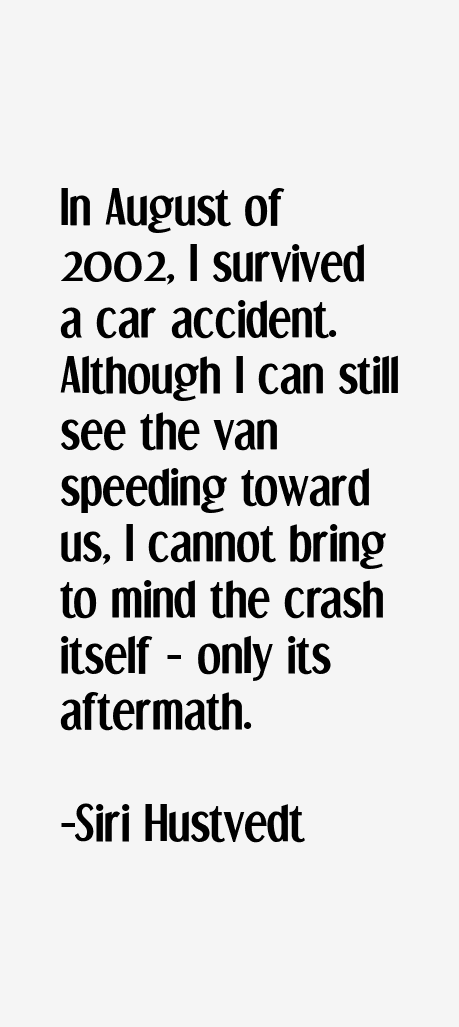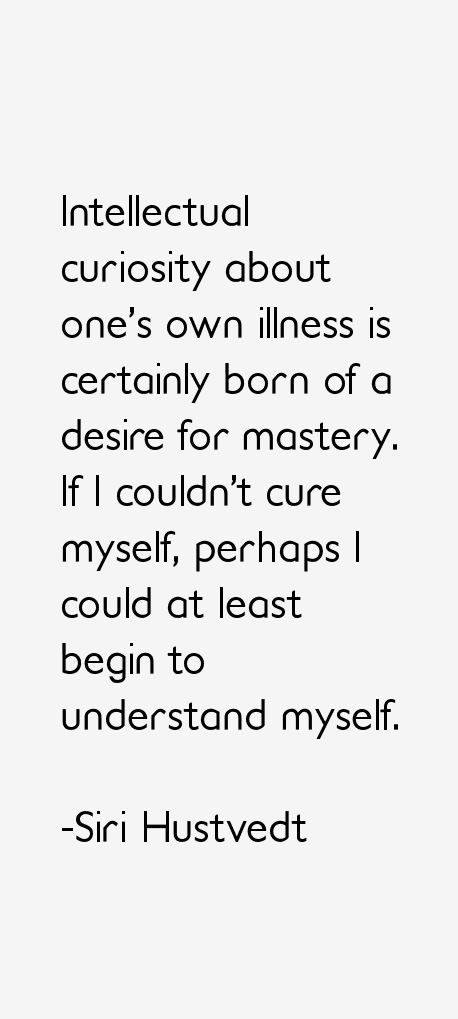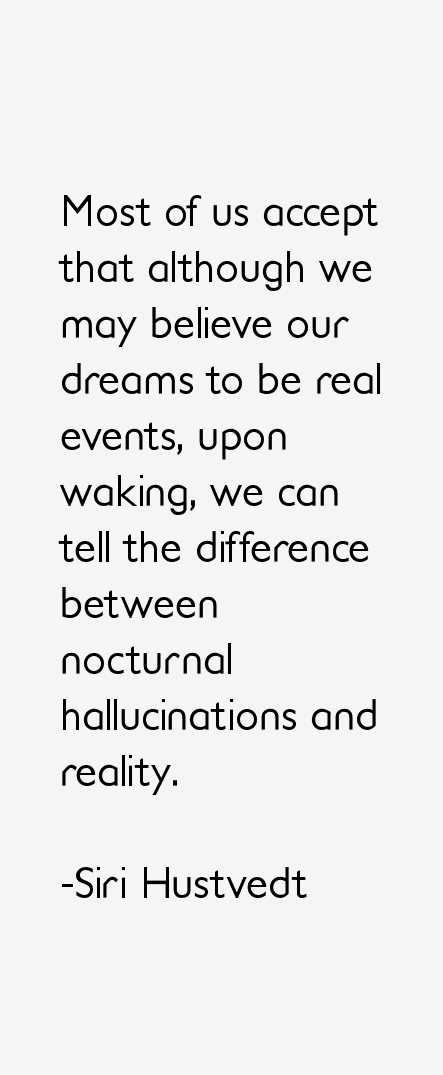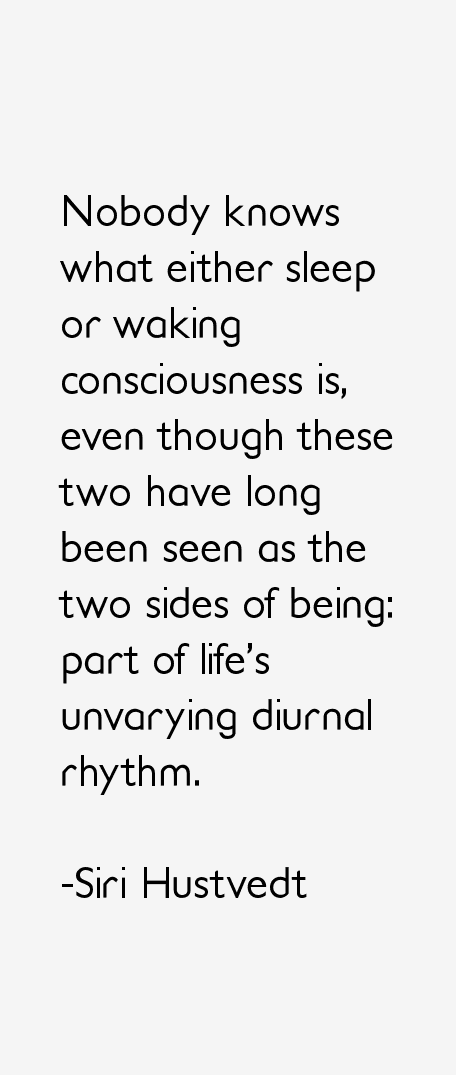Siri Hustvedt Quotes & Sayings (Page 8)
Siri Hustvedt quotes and sayings page 8 (novelist). Here's quote # 71 through 80 out of the 99 we have.

“In August of 2002, I survived a car accident. Although I can still see the van speeding toward us, I cannot bring to mind the crash itself - only its aftermath.”

“Intellectual curiosity about one's own illness is certainly born of a desire for mastery. If I couldn't cure myself, perhaps I could at least begin to understand myself.”

“It's hard to penetrate characters who are very cut off and lack empathy and to do it with sympathy. It's so easy to make a damaged character repugnant.”

“It's thought that about 96% of us have visual imagery, and there's a very tiny minority in the population, some of whom are normal, some of whom have brain lesions, who cannot produce visual imagery.”

“Many scholars working in the humanities have already shown interest in brain research. For years, contemporary theory in the humanities has left the body and biology out of their discussions.”

“Most of us accept that although we may believe our dreams to be real events, upon waking, we can tell the difference between nocturnal hallucinations and reality.”
“My feeling is, when you are writing an essay, you don't make anything up. This may be a very Protestant notion, and I'm aware of the fact that memory is fallible, that if I had access to films or some absolute documentary evidence of what happened, it might look different; we get confused and fuzzy.”

“Neurobiological research has shown that in people with chronic PTSD, both stress hormone secretion and areas of the brain connected to memory function, such as the hippocampus, appear to be affected, although exactly how and why remains controversial.”

“Nobody knows what either sleep or waking consciousness is, even though these two have long been seen as the two sides of being: part of life's unvarying diurnal rhythm.”

“Only time will tell in what ways Freud was prescient and in what ways he failed to understand how the mind functions. For example, no scientist and very few psychoanalysts still embrace Freud's death instinct.”
Siri Hustvedt Quotes Rating
No Ratings Yet
Leave A Comment
























